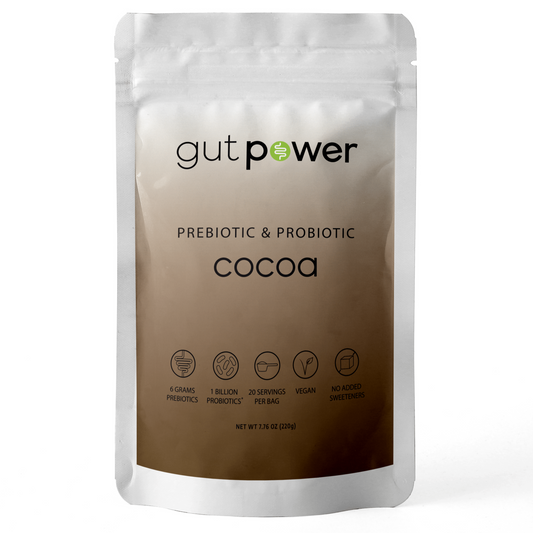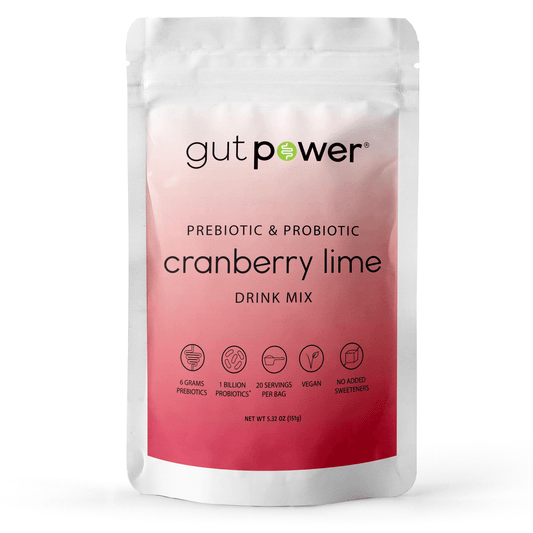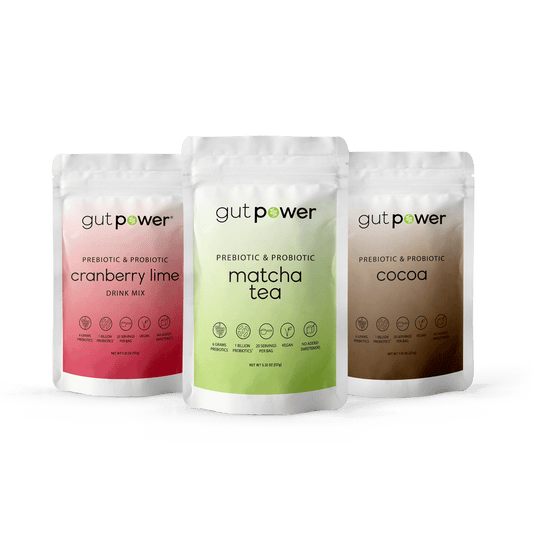Not feeling so hot after your first few days of SIBO treatment? You might be experiencing what many refer to as “SIBO die off symptoms” including fatigue, muscle aches, worsened SIBO symptoms, and headaches.
Let’s talk about why you could be having them, what symptoms are normal, how to reduce them, and when they could become concerning.
The Gut Microbiome
Let’s quickly recap what’s going on down there in the first place.
Your gut microbiome is the collection of organisms that live in your gut. Some microbiota are good, and some are bad. Having too many harmful microbiota in your gut microbiome can cause nasty symptoms. We call that imbalance of good and bad bacteria, “dysbiosis.”
But where does SIBO fit in?
What is SIBO?
SIBO is a form of dysbiosis (an imbalance of bacteria in the gut). It’s unique, though, in that your microbiota are hanging out in the wrong part of your intestines: your small intestine (usually, they should mostly be in the large intestine).
Whichever treatment option you choose to treat your SIBO will work to kill off the microbiota living in your small intestine since excess bacteria hanging out in the small intestine can cause a host of symptoms like bloating, gas, constipation, and diarrhea.
SIBO Treatment
There are lots of different options for SIBO treatment, like SIBO herbal treatments, SIBO antibiotic treatments, and the elemental diet.
But the goal of each treatment strategy is primarily the same: kill off bacteria in the small intestine, since it is the excessive bacteria here causing SIBO symptoms.
SIBO Die Off Symptoms
There is a lot of talk about “die off” in the SIBO world...but, is it real?
Surely, your symptoms are real -- but do they come from the killing of the organisms causing your SIBO? Let’s find out.
Generally, “die off” refers back to a Herxheimer reaction, which is thought to be an inflammatory reaction to toxins and proteins released from dying microbiota. As that inflammatory response creeps up, you might experience symptoms like:
- Chills
- Fatigue
- Muscle aches
- Brain fog
- Headaches
- Potentially fevers
- Exacerbation of SIBO symptoms (bloating, constipation, diarrhea, etc)
So, it’s possible to experience these kinds of symptoms when on SIBO antimicrobial treatment.
However, make sure you keep a tab on how long the symptoms last; they should be short-lived.
When “Die Off” Symptoms Aren’t Normal
If you think you are experiencing “die off” symptoms that last for a long time, chances are there is something else going on with your treatment plan. It could be a reaction to something in one of your SIBO herbal treatment supplements or medications.
Reach out to your healthcare practitioner if they persist, since SIBO die off symptoms should generally only last a few days.
This is where folks tend to get tripped up; it’s easy to think that you’re dealing with “die off,” when in reality it’s very likely that the treatment protocol just isn’t right for you and you would tolerate something else much better.
That said, any time you are altering your gut microbiome significantly, whether that be through probiotics, prebiotics, antibiotics, you name it -- you may experience less severe symptoms that last a bit longer than a few days (still only a couple weeks, typically).
If your symptoms are intense (like the SIBO die off symptoms listed above) or you have less severe symptoms that last longer than a couple weeks, it’s a good idea to reach out to your healthcare practitioner to discuss a potential new treatment plan.
The Bottom Line: SIBO Die Off Symptoms and What You Should Do About Them
SIBO treatment works to kill off organisms in your small intestine. As these bacteria die, they release toxins that may trigger an inflammatory response, called the Herxheimer reaction. That inflammatory response may be behind your SIBO die off symptoms. Most importantly, it should only last a few days.
But what can we do in the meantime to limit those symptoms? Though it sounds simple, staying hydrated and getting enough sleep can make a big difference in your body’s ability to clear toxins. Some people like saunas or sweating to help with the process as well. Eating food with lots of antioxidants and avoiding inflammatory foods can also help.
If your symptoms are severe and last longer than a few days, or if you have less intense symptoms that last more than a few weeks, reach out to your healthcare practitioner to reevaluate your treatment plan.





